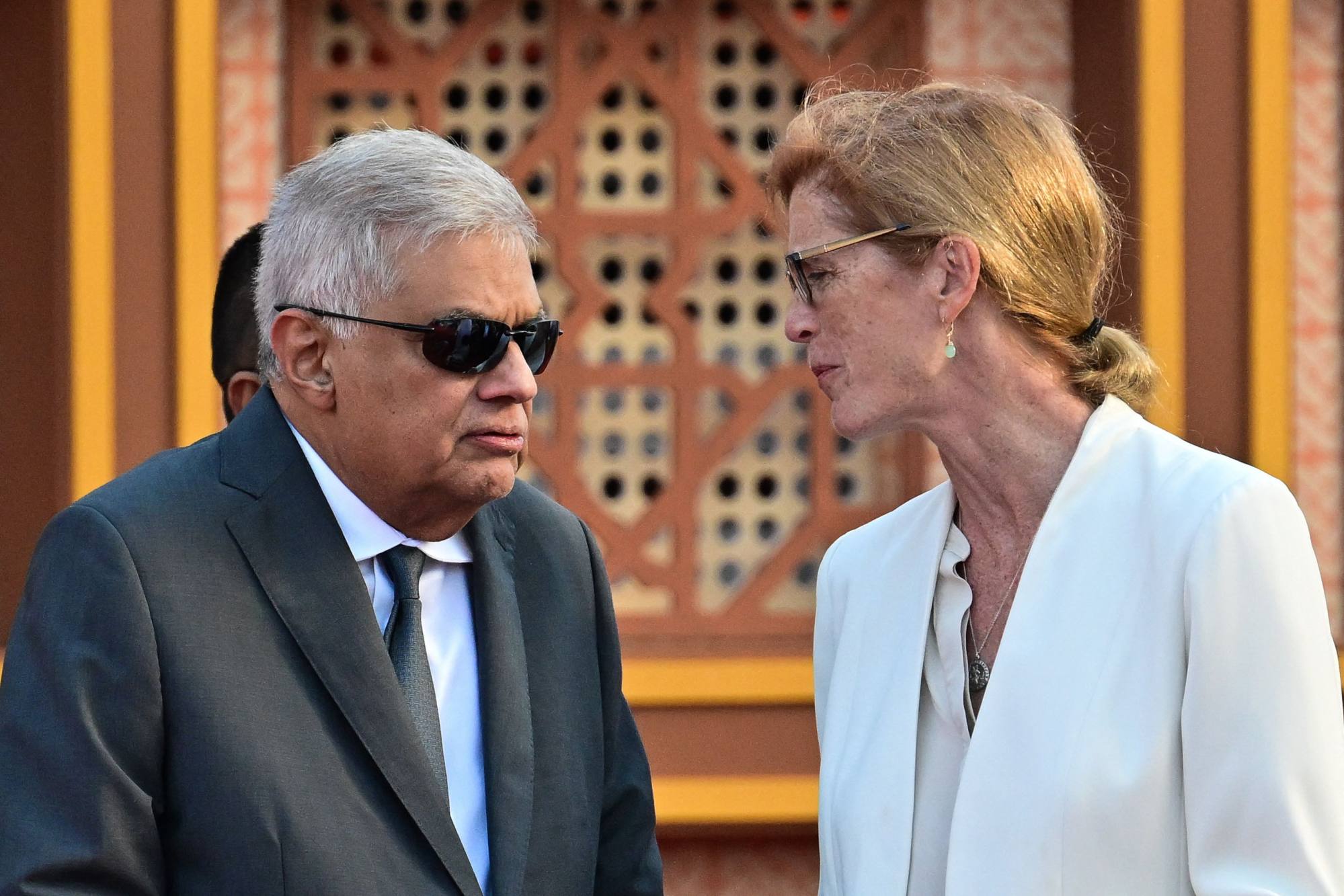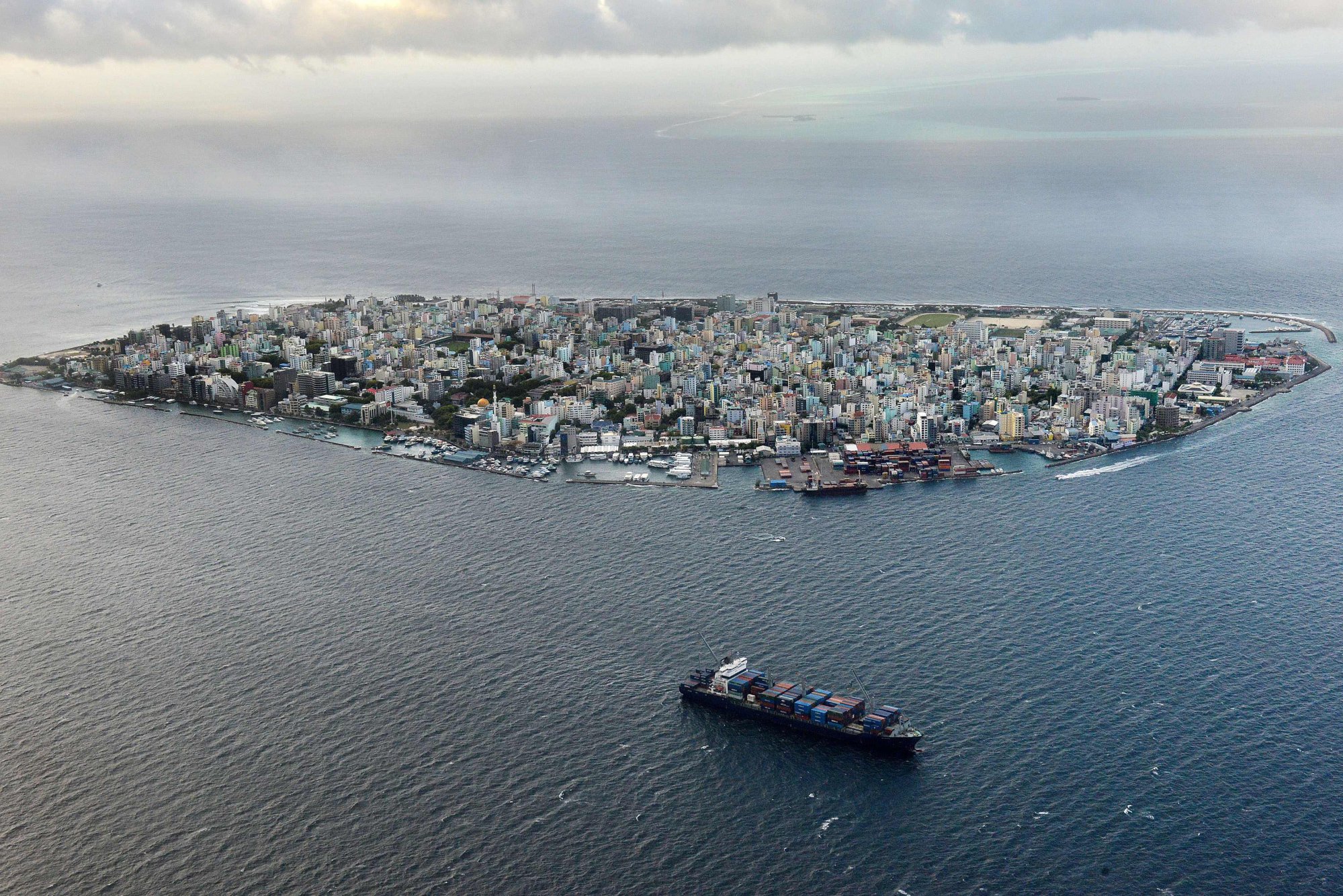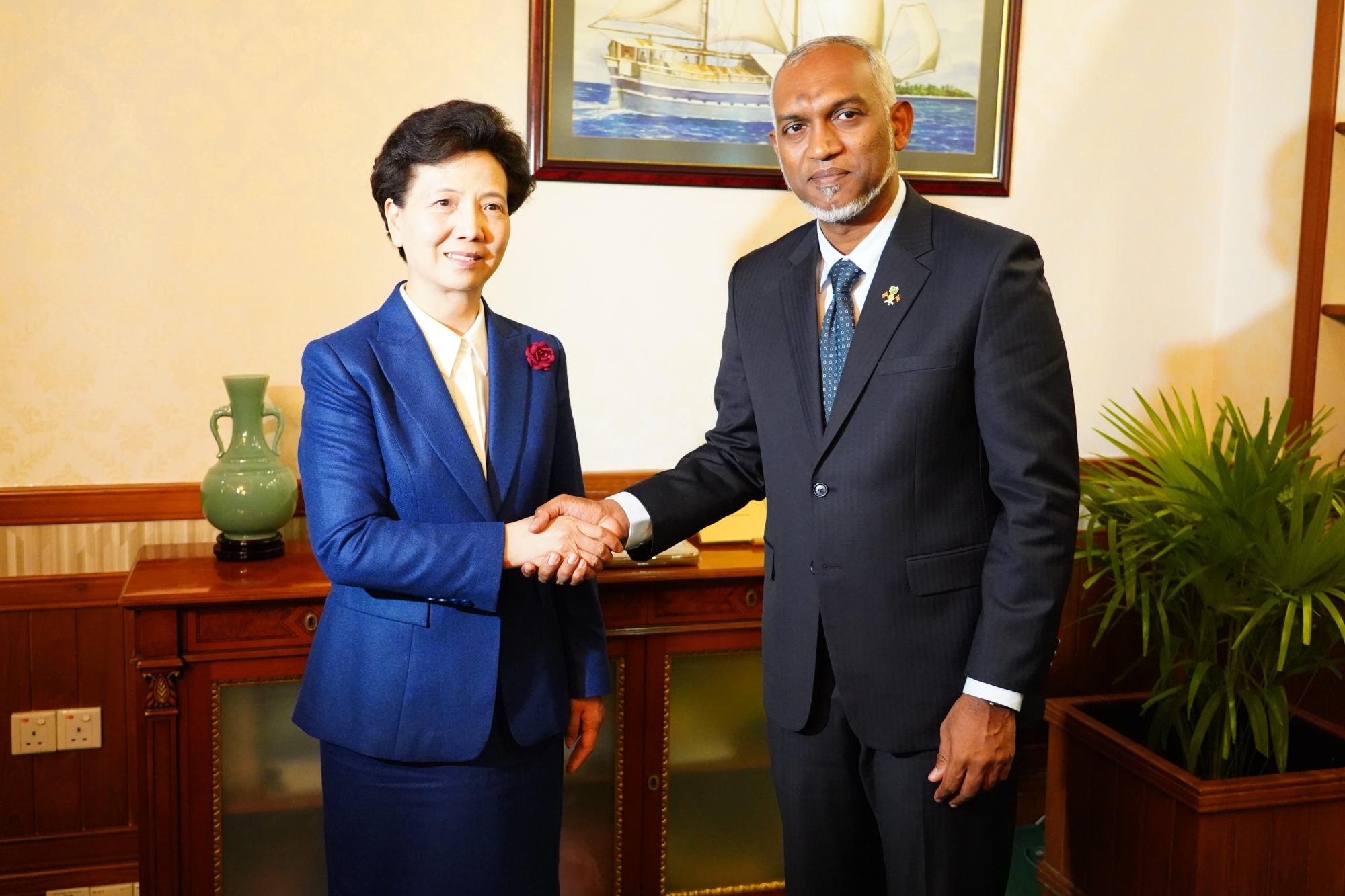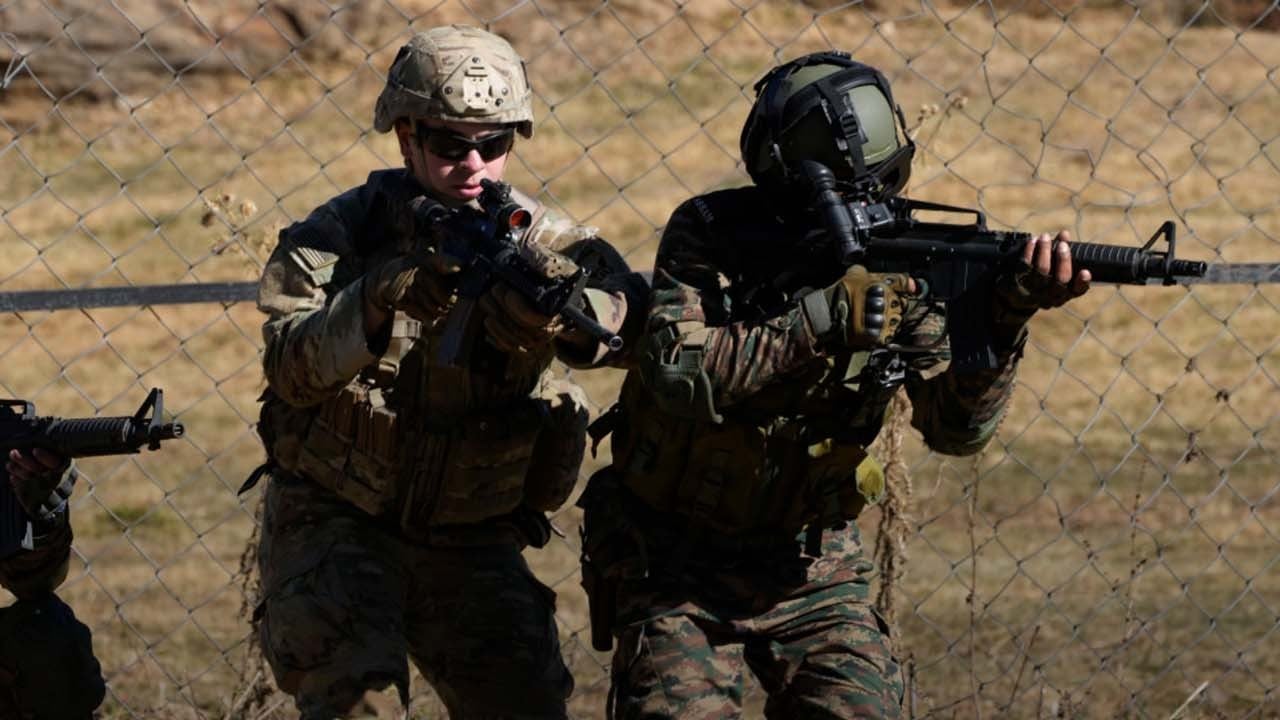
Under new president, Maldives tilts toward China, away from US’ Indo-Pacific ally India
- Mohamed Muizzu, who is viewed as pro-China, won October’s presidential election on a promise of getting Indian troops out of Maldives
- Washington has called Maldives an ‘integral part of a free and open Indo-Pacific region’, noting that it sits astride key international shipping lanes
When Maldives’ newly elected president, Mohamed Muizzu – who is largely viewed as pro-China – extended an invitation to the Indian prime minister to attend his oath-taking ceremony this month, Narendra Modi instead sent his earth sciences minister, Kireen Rijiju, to represent the country in Male.
The choice was symbolic. In the Indian parliament, Rijiju represents the state of Arunachal Pradesh, which is in the northeastern area of India that is claimed by China as “South Tibet”. To New Delhi’s dismay, Beijing issues “stapled visas” to the people of Arunachal instead of standard ones. The 1,864-mile (3,000km) Line of Actual Control, a tense de facto border between India and China, also passes through the state.
But while Rijiju did secure a personal audience with the new leader in Male, it came with a terse public message: remove Indian troops from Maldives.
In October, Muizzu won the election on the “India out” promise. The exact number of Indian military personnel in Maldives is not known. Ibrahim Khaleel, Maldives’ minister for strategic communication, has said that “the president himself will have to find out the number of Indian troops” – hinting at the level of secrecy maintained around the issue by Muizzu’s predecessor, Mohamed Solih, who referred to India as “closest friend”.
India is believed to have around 75 navy and coastguard staff in Maldives, a nation of islands popular for its turquoise waters and white sand beaches. According to Indian media reports, these are mostly technicians and crew involved in humanitarian and disaster relief work as the archipelago faces rising sea levels.
New Delhi has officially described Maldives as holding an important position in Modi’s vision of “Security and Growth for All in the Region”, an India-led maritime initiative that prioritises peace, stability and prosperity in the Indian Ocean.
Last year, Washington similarly called Maldives a “valuable partner” and an “integral part of a free and open Indo-Pacific region”, noting that the country sits astride key international shipping lanes.
The US and India are also members of the Quad, a US-led security bloc with Japan and Australia. The group is aimed at what President Joe Biden’s administration calls “maintaining peace and stability” in the Indo-Pacific. Beijing has criticised it as a “small clique” that is “bent on provoking confrontation”.
Maldives eyes China investment as Beijing looks to ‘seize the opportunity’
Experts say that the Maldives change in leadership seems to have hurt India’s geopolitical interests and, by extension, Washington’s Indo-Pacific strategy.
Raghvendra Kumar, who specialises in Indian Ocean geopolitics and maritime affairs at the University of Delhi, said there was apprehension regarding the new government potentially adopting an “anti-India or anti-US stance, leading to changes in policies, governance or diplomatic relations”.
He added that, for Beijing, Maldives is “strategically important in its active efforts to encircle India, replace US dominance and secure economic and security interests”, emphasising that the Indian Ocean is “an area of immediate concern for India and the US”.
Kumar said it was crucial for India and the US to respond promptly, calling for both to collaborate in shaping their Maldives policies, particularly in economic development, infrastructure and security.

But a US State Department representative played it down as a “matter between Maldives and India”, adding that the US was committed to working with the government and people of Maldives “to advance our shared interests”.
Washington’s delegation to Muizzu’s inauguration was led by Samantha Power, the US Agency for International Development administrator, who personally congratulated the new leader. A US statement said Muizzu “welcomed the growing partnership between the US and Maldives on security, development and global challenges such as climate change”.
David Brewster, an Indian Ocean expert at the Australian National University in Canberra, noted that “Washington ultimately defers to Delhi as the leading security provider in South Asia”.
He added that unlike the Pacific, major power competition in the Indian Ocean region was “principally occurring between China and India, and much less so directly between China and the United States”.
Maldives’ China-friendly president officially asks India withdraw troops
Nilanthi Samaranayake, an adjunct fellow at the East-West Centre, a Washington think tank, said the US had “reinvigorated” its relationship with Maldives over the past year by “dispatching a resident ambassador to Maldives and establishing an in-country embassy rather than relying on the US embassy in Sri Lanka”.
Maldives has also re-established its embassy in Washington with a resident ambassador.
Samaranayake said Washington’s allocation of resources points to Maldives’ growing importance in US relationships in the Indian Ocean.
But Derek Grossman, a senior analyst at the Rand Corporation, a think tank in Washington, said: “The change in leadership probably won’t amount to much given that Washington does not have a particularly robust partnership with Male.”

“It is more likely that the US will leverage its strengthening partnership with India to ensure that China does not gain a military foothold in the island nation,” he told the US magazine Newsweek.
In recent years, New Delhi, backed by Washington, has competed against China to play a leading role in the Indo-Pacific. Many smaller island nations have been caught in the geopolitical tug of war, and India’s reversal of fortunes in Maldives is another piece in the long game of influence in the Indian Ocean.
During Solih’s presidency from 2018 to 2023, India invested hundreds of millions of dollars into several Maldivian infrastructure projects. This includes a 6.7km (4.2 miles) road project, still under construction, to connect Male with three popular tourist islands. New Delhi has approved US$100 million in grants and a US$400 million line of credit for the project.
However, from 2013 to 2018, during the presidency of Abdulla Yameen – Muizzu’s corruption-tainted mentor, who is now in jail – Maldives moved decidedly toward China. It became only the second Indian Ocean island nation to join Beijing’s multibillion-dollar Belt and Road Initiative. The 1.3km Sinamale Bridge, originally named the China–Maldives Friendship Bridge, was opened in 2018.
‘India out’, ‘China in’ under new Maldives president? Not so fast
Today, approximately 70 per cent of the Maldives’ total debt is attributed to Chinese projects. In 2019, Mohamed Nasheed, an adviser to president Solih, said Male could owe Beijing as much as US$3 billion.
The US and its Indo-Pacific partners regard Chinese loans as a “debt trap” to further its “string of pearls” strategy of establishing Chinese ports along the Indian Ocean coastline.
India has long speculated about Beijing establishing a military base in Sri Lanka’s Hambantota and Pakistan’s Gwadar ports, both built with Chinese money. Sri Lanka, which defaulted on its debts last year, owes about US$7 billion to China. The US has been the second largest aid provider to Sri Lanka during its economic crisis, after India.

Brewster of the Australian National University said the jostling of influence has created some “real dilemmas for small island states in managing their external relationships”.
“If not managed very carefully, this strategic competition can have a significant adverse impact on political and economic stability,” he said, adding that he hoped Muizzu would tread carefully in his country’s relationships with major nations such as India, China and the US.
“I think that in some ways Muizzu might ultimately see value in having middle powers such as Australia, Japan or France playing a greater role,” he said. “Those countries can help develop Maldives’ capabilities without the controversies that India bring. They could also to some extent help mitigate the impact of India-China competition.”


